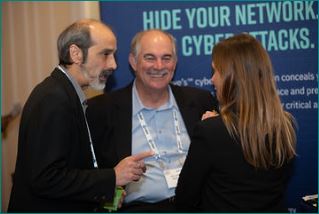
Well, now that American Thanks Giving is nearly a week in our collective history & before we launch ourselves wholeheartedly into December season I’d like to take a minute to reflect on a few poignant moments I shared with colleagues across the country earlier this fall.
Kicking off @PlugandPlay #fall #summit2018 in Santa Clara the #innovations across these six divergent yet complimentary core areas of focus were riveting; Brand & Retail, Cybersecurity, Fintech, Food & Beverage, New Materials & Packaging, and Supply Chain. The collective brainpower in the room was outstanding & I feel lucky to have my IP and startup in this network of entrepreneurs and business leaders from around the globe. A couple of innovations that really stood out were #AI powered voice systems and drinking water innovation.
AVRL is a company dedicated to AI for improving efficiencies through AI powered voice systems. The CEO Chadd Olesen is a breath of fresh air to speak to with his down to earth commentary on the what the future holds for AI, parsing text and the myriad of applications possible.
Another company that won in it’s division of food & beverage covers a topic that is near and dear to me, WATER. My love of water transcends all water uses and this new way of bringing drinking water to the masses is no exception, especially as a Canadian, lover of maple syrup. The notable company, Asarasi has developed a renewable & sustainable source of pure plant-based water from maple trees. It’s really an exceptional concept, not to mention delicious.
A few days later I was in Las Vegas, attending the Journal of Commerce’s Tech in Logistics conference. Pleasantly surprised with the content and variety of talks on how supply chain professionals & businesses are looking at adapting new tech opportunities into their business profiles I know I would attend again in a heartbeat. Insights into advanced manufacturing, AI, robotics, cyber security, blockchain, IOT, predictive analytics, ignited great conversations.
A topic I have spent much time dedicated to researching the best use cases for is #blockchain. What I know is that supply chain is a $2Trillion industry & we have yet to scratch the surface of just how big the opportunity & impact #blockchain will have. I am excited to be a part of the future as blockchain solutions start to shape the foundations of commercial business practices going forward.
My last road travels for 2018 landed me in Austin, Texas at the #Logistics #CIO Forum hosted by #EFT Eye for Transport. The 2-day events was a treat, the venue allowed for a concentrated group of leaders whom were easy to connect with.
The conference proved to be a great place to connect with people.
Thanks to all for involved at this venues, these companies, and great creative thinkers. It is mind expanding, and a relief to be a part of these communities of thoughtful problem solvers trying to make the world and commercial enterprise a better place with every new day.

WHY? Well I care, but let me explain.
So this is technically my first blog post ever. Yes, I’m a little late to the party but after creating all the content for this Garner Enterprises website I felt like I’d exhausted my conversation points with the why’s and how’s companies should seriously consider moving long-haul commercial freight to rail where the networks are strong. And, honestly that has really been my focus for nearly a decade. Create efficiencies in steel wheel connections, make more money & lower your carbon emissions while doing it.
That is until 2015 when my RRS feed blew up with chatter about concerns around the VGM & what the impact would be when the International Maritime Organization implemented the long consider verified gross mass regulation that would affect all member nations. On any given day that’s somewhere between 162 and 175 countries whom hold title as IMO member nations. This is an appealing title and not one that member nations are quick to have repealed.
Now, the IMO is not frequently in the business of implementing new regulations. However, ballast is a critical issue and given the severity of poorly calculated ballast impacting the safety of life at sea, SOLAS, the IMO decided it was high time to make a move that would impact the international community.
So they did, on July, 1st 2016 the VGM regulation was implemented.
There are a handful of international organizations internationally that manage these transactions. Modestly, a single organization may handle over a million VGM transactions weekly. In 2016, the top ten international ports reported over 200 million TEUs moved.
Enter BlockChain.
